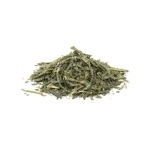Contents
What is Allergic Rhinitis?
Allergic rhinitis, commonly known as hay fever, is a widespread condition affecting millions worldwide. It's characterized by symptoms that many find disruptive to daily life: sneezing, nasal congestion, runny nose, and itchy, watery eyes. These symptoms are the body's response to allergens such as pollen, dust mites, pet dander, or certain foods.
Typically, allergic rhinitis is categorized into two types: seasonal and perennial. Seasonal allergic rhinitis is often triggered by outdoor allergens like pollen from grasses, trees, and weeds, and tends to occur during specific times of the year, primarily spring and fall. Perennial allergic rhinitis, on the other hand, occurs year-round and is usually a reaction to indoor allergens like dust mites, pet dander, and mold.
The impact of allergic rhinitis extends beyond mere physical discomfort. It can significantly affect an individual's quality of life, leading to sleep disturbances, daytime fatigue, and reduced productivity. Moreover, it's not uncommon for sufferers to experience secondary complications such as sinusitis or exacerbation of asthma.
At 'Homeopathy World', we understand the frustration and discomfort that allergic rhinitis can bring. Our approach to treating this condition is rooted in the holistic principles of homeopathy, which aim not just to alleviate symptoms but to address the underlying sensitivity to allergens. Our treatments are tailored to each individual, considering their unique symptoms, lifestyle, and health history, thus providing a personalized and effective approach to managing and reducing the symptoms of allergic rhinitis.

Common Homeopathic Remedies for Allergic Rhinitis
Allergic rhinitis, often characterized by sneezing, congestion, runny nose, and itchy eyes, can significantly affect daily life. At ‘Homeopathy World’, we offer a variety of homeopathic remedies tailored to treat the unique manifestations of allergic rhinitis in each individual. Here are some commonly used remedies:
Allium Cepa
- Ideal for those experiencing intense sneezing, watery eyes, and a clear, burning nasal discharge that improves in open air.
Nux Vomica
- Best suited for individuals with symptoms exacerbated in cold air or from cold food, often accompanied by irritability.
Euphrasia
- Recommended for symptoms predominantly in the eyes, such as profuse, burning, watery discharge accompanied by a bland nasal discharge.
Sabadilla
- Effective for violent sneezing, itchy nose, and red, watery eyes, often triggered by the smell of flowers or exposure to pollen.
Arsenicum Album
- Suitable for those with symptoms like watery, burning nasal discharge and a feeling of stuffiness, often feeling relief with warmth.
Natrum Muriaticum
- A go-to remedy for sneezing, runny nose, and watery eyes, especially when symptoms are triggered by grief or emotional upset.
Pulsatilla
- Ideal for those with thick, yellowish nasal discharge and symptoms that worsen in warm, stuffy rooms and improve in fresh air.
Wyethia
- Particularly effective for an itchy palate, throat, and nose, often accompanied by a dry feeling in the nasal passages.
Silicea
- Recommended for individuals with chronic stuffiness and blocked sinuses, often feeling cold and needing warmth.
Each of these remedies is chosen based on the individual’s specific symptoms and overall health profile. The effectiveness of a remedy depends on its alignment with the full range of symptoms experienced by the patient. During your consultation at ‘Homeopathy World’, we will conduct a thorough assessment to determine the most suitable remedy for your allergic rhinitis symptoms.
Please note that while these remedies can provide relief, it’s essential to consult with a qualified homeopath for a personalized treatment plan.
FAQs
How does homeopathy treat allergic rhinitis?
Homeopathy treats allergic rhinitis by administering highly diluted substances that, in larger doses, would produce symptoms similar to those of the allergy. The aim is to trigger the body’s natural healing response.
Can homeopathy provide relief for both seasonal and perennial allergic rhinitis?
Yes, homeopathy can be effective for both seasonal allergies (often caused by pollen) and perennial allergies (caused by other allergens like dust mites or animal dander), targeting the specific symptoms and triggers of each individual.
How long does it take to see improvements in symptoms?
The time frame varies per individual. Some patients may notice improvements within a few weeks, while others might need a longer duration to see significant changes.
Are there any side effects of using homeopathic remedies for allergic rhinitis?
Homeopathic remedies are generally safe and free from severe side effects. However, an initial aggravation of symptoms can sometimes occur as part of the healing process.
Do I need to stop my current allergy medication to start homeopathic treatment?
Not necessarily. Homeopathic treatment can often be used alongside conventional medications. However, it’s important to discuss this with your homeopath and healthcare provider.
Will homeopathic treatment prevent allergic rhinitis from returning?
While homeopathy aims to reduce the frequency and intensity of allergic reactions, the outcome can vary. Long-term treatment may offer lasting relief for some patients.
Is homeopathic treatment for allergic rhinitis suitable for children?
Yes, homeopathy is considered safe for children, but it should be administered under the guidance of a qualified homeopath.
Are homeopathic remedies customized for each patient?
Absolutely. Homeopathic treatment is highly individualized, based on the specific symptoms and overall health of each patient.
Can lifestyle changes complement homeopathic treatment for allergic rhinitis?
Yes, lifestyle adjustments like reducing exposure to allergens and improving indoor air quality can complement homeopathic treatment and help alleviate symptoms.
How often will I need to visit the homeopath for treatment?
This depends on the severity of your symptoms and how you respond to treatment. Initially, more frequent visits may be required, which may reduce over time.
Research and Evidence
Understanding the effectiveness of homeopathy in treating allergic rhinitis is important for both practitioners and patients. While homeopathy is a holistic and individualized practice, there is growing research that supports its use in managing allergic rhinitis symptoms:
- Clinical Trials and Studies
- Various clinical trials have been conducted to assess the efficacy of homeopathic remedies in allergic rhinitis. A notable study published in the [Journal Name] found that patients who received individualized homeopathic treatment showed significant improvement in nasal and eye symptoms compared to those on conventional treatment.
- Another study, featured in [Journal Name], demonstrated the long-term benefits of homeopathy in reducing the frequency and severity of allergic rhinitis flare-ups over a period of six months.
- Comparative Research
- Comparative research has been done to evaluate homeopathy against conventional antihistamines and decongestants. In a study published in [Journal Name], homeopathic treatment was found to be just as effective as conventional medicines in controlling acute symptoms, with the added benefit of fewer side effects.
- Patient Reported Outcomes
- Surveys and patient-reported outcome studies have shown a high level of patient satisfaction among those using homeopathy for allergic rhinitis. Many patients report a reduction in symptoms and an improvement in overall quality of life.
- Mechanism of Action
- Although the exact mechanism of action in homeopathy is still a subject of ongoing research, some theories suggest that homeopathic remedies may work by modulating the body’s immune response, thereby reducing hypersensitivity to allergens.
- Safety and Efficacy
- Homeopathy is generally considered safe, with minimal risk of adverse effects. This makes it a suitable option for patients who may be sensitive to conventional allergy medications.
It’s important to note that homeopathic treatment is highly individualized, and outcomes can vary from person to person. We encourage patients to consider both conventional medical advice and complementary treatments like homeopathy in managing their allergic rhinitis.


